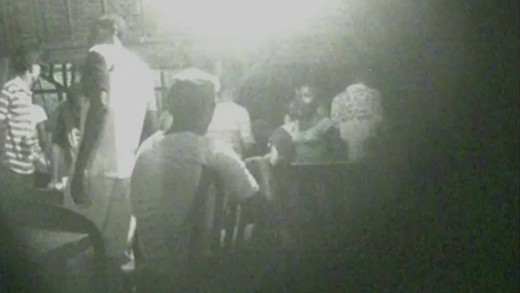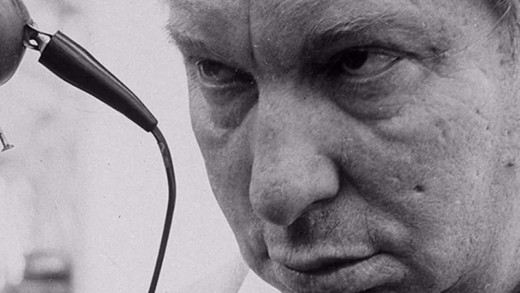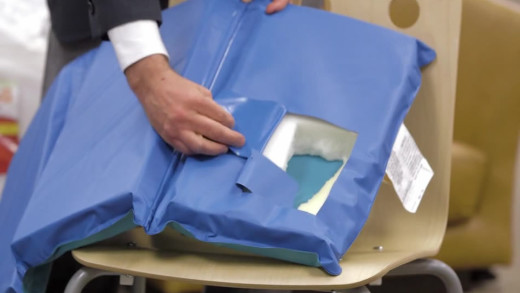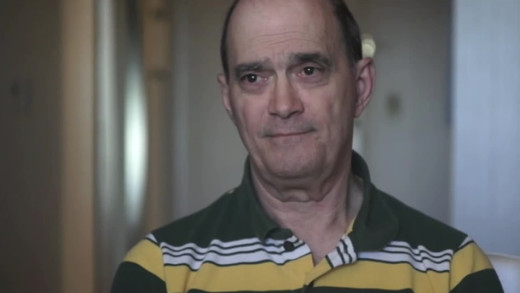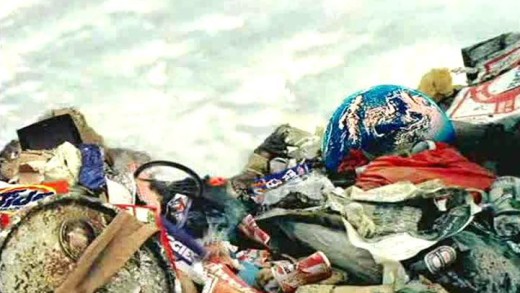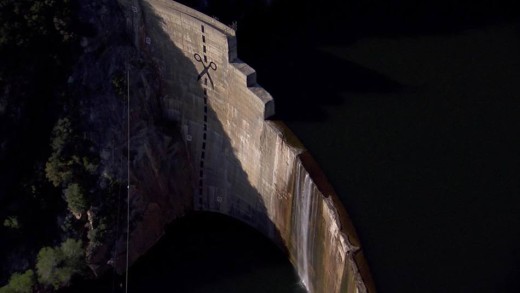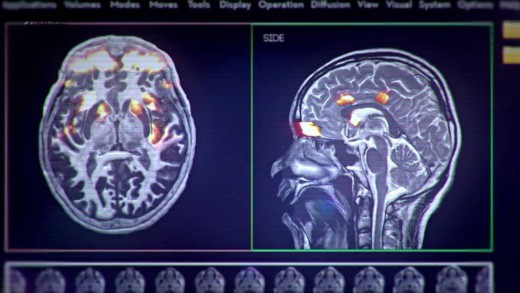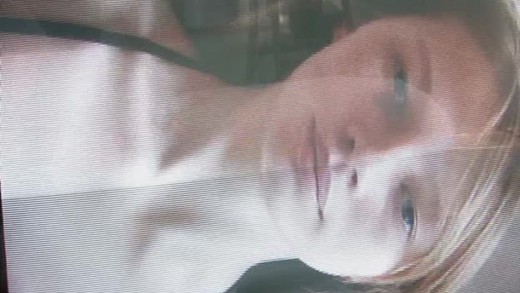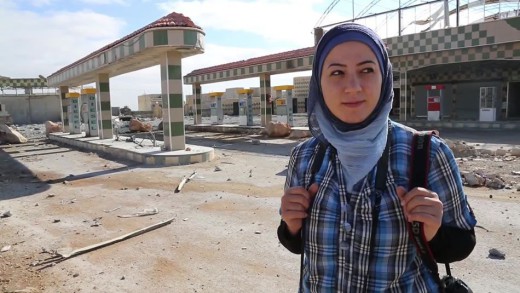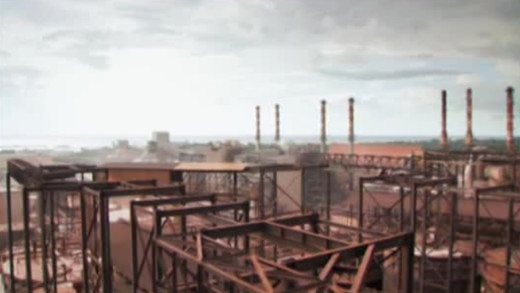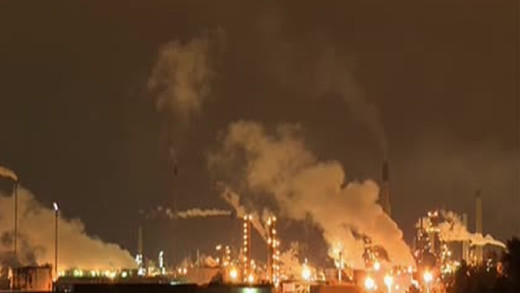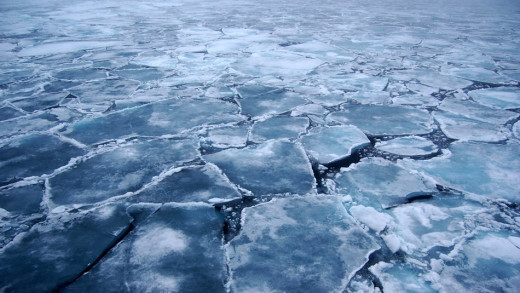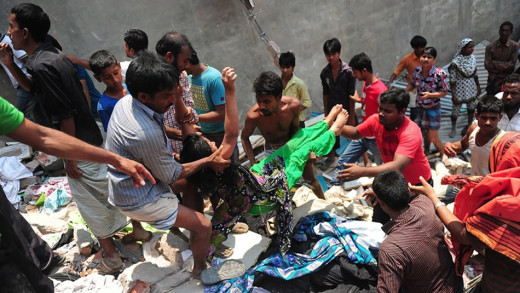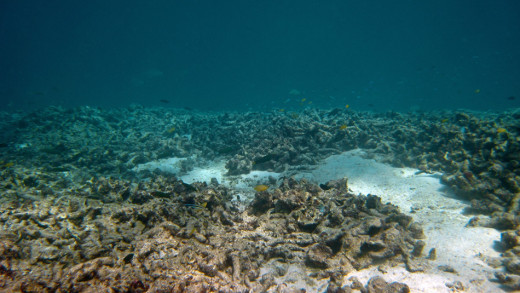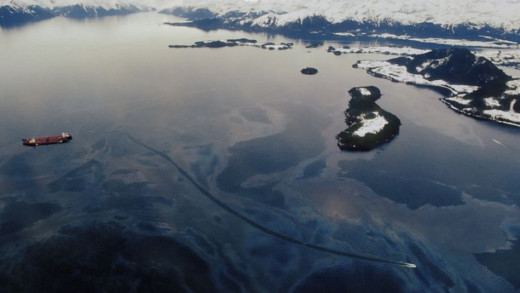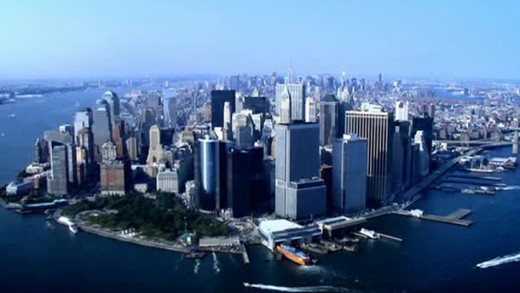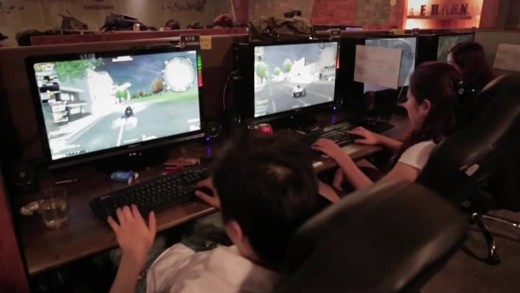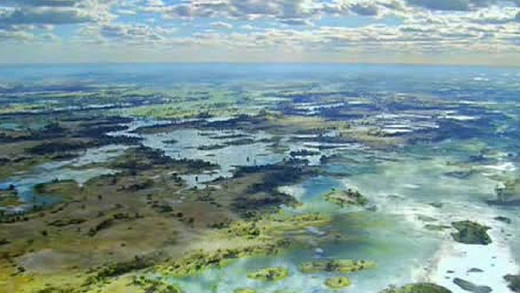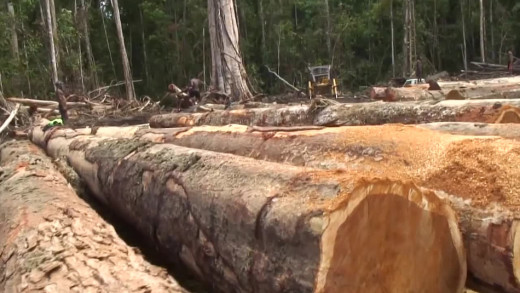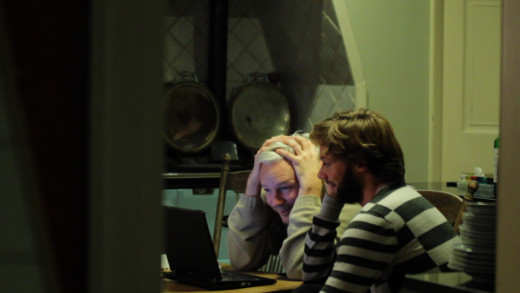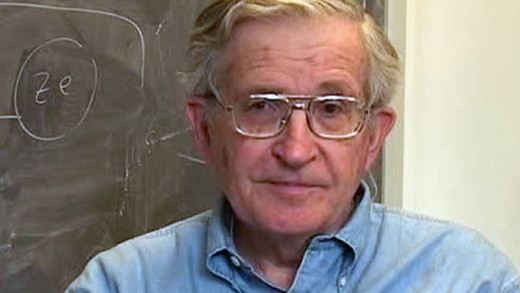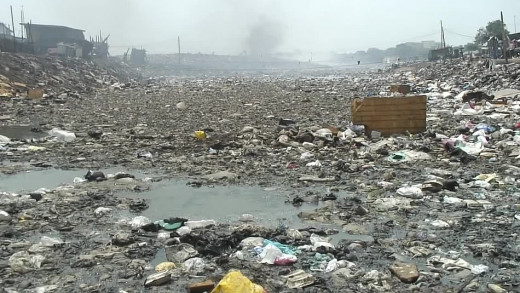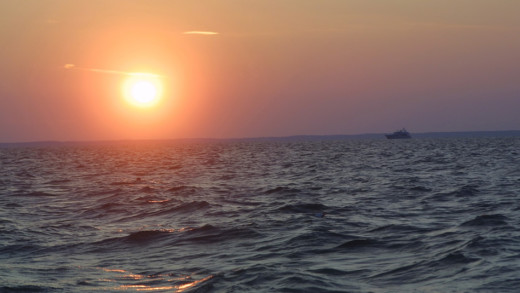Using undercover filming, Sex and Survival in Madagascar exposes the booming child sex trade of the 21st Century. In the hub of Madagascar, one of the world's poorest countries, prostitution is rampant and seen as an unavoidable means of survival. The film shows the complicity and complacency of authorities that do not act to stop this terror, and so the acts of resistance against sex slavery are carried out by the children themselves.
Going Clear
Going Clear: Scientology and the Prison of Belief profiles eight former-members of the cult of Scientology, leading to a series of revelations of the history of systematic abuse, manipulation, and betrayal in the organisation by Scientology officials and celebrity figures. The film highlights the origins of Scientology, from its roots in the mind of founder L. Ron Hubbard and successor David Miscavige, to its rise in popularity in Hollywood and beyond. The result is a record of great harm, paranoia, abuse, the vast accumulation of wealth, and a lust for power and control.
Chemical flame retardants are everywhere--in our furniture, our homes, our bodies. But do they work as promised? And are they making us sick? The three chemical companies producing flame retardants would prefer that we not ask these questions, and they've spent millions of dollars on lobbyists, publicists and influencers to ensure that we don't. Toxic Hot Seat wades through the mess to piece together an intricate story of manipulation that details how Big Tobacco skillfully convinced fire safety officials to back a standard that, in effect, requires all furniture to be filled with toxic chemicals...
The Program
The Program is a short film focusing on William Binney—a former highly placed intelligence official with the United States National Security Agency, turned whistleblower after revelations that a system he created for foreign intelligence gathering was turned inward for domestic spying at the behest of the Bush administration in 2001. For this, Binney resigned in October of that year and later began speaking publicly. He is among a group of NSA whistle-blowers, including Thomas A. Drake, who have each risked everything—their livelihoods, freedom, and personal relationships—to warn everyone about the dangers of the current era of mass surveillance.
Focusing directly on the world of commercial images, Advertising and the End of The World asks some basic questions about the cultural messages emanating from advertising: Do these messages deliver what they claim—happiness and satisfaction? Can we think about our collective as well as our private interests? And, can we think long-term as well as short-term?
The Milgram experiment on obedience to authority figures was a series of social psychology experiments conducted by psychologist Stanley Milgram in July 1961, three months after the start of the trial of German Nazi war criminal Adolf Eichmann. The experiment set out to measure the willingness of study participants to obey an authority figure who instructed them to perform acts conflicting with their personal conscience, in an attempt to answer the popular question at that time: "Could it be that Eichmann and his million accomplices in the Holocaust were just following orders?"
DamNation
Travelling across North America, DamNation investigates the growing change in national attitude from strange pride in big dams as domineering engineering projects, to the growing truthful awareness that dams have always been the great killers of rivers, wildlife, the salmon, the forests, coastlines, watersheds. Life is bound to water and health of rivers, and now, dam removal in many forms—including Monkey Wrenching—is reclaiming that life and spreading. Where dams come down, rivers come back, allowing the salmon to return after decades of being concreted out. By making firsthand unexpected discoveries moving through rivers and the landscapes altered by dams, DamNation presents a much-needed metamorphosis in values, from conquest of the natural world to knowing ourselves as part of nature; to respect, and be humbled. With over two million dams in North America alone—75,000 of them over six feet tall—there's much work to be done. Let's get to it.
InRealLife
InRealLife asks: What exactly is the Internet and what is it doing to our children? Taking us on a journey ranging from the bedrooms of British teenagers to the explosive world of Silicon Valley, filmmaker Beeban Kidron suggests that rather than the promise of free and open connectivity, young people are increasingly ensnared in a commercial world. And as this is explained, InRealLife asks if we can afford to stand by while our children, trapped in their 24/7 connectivity, are being outsourced to the web.
Martin Daubney walks away from his position as editor of a renowned porn magazine after becoming a father. With his son, now four years old amongst the confusion by contradictory headlines, and driven by the knowledge that his boy will soon reach the age at which most children first see porn--10 years old--Daubney wants to find some answers. How does pornography effect kids? Where is the evidence? Porn on The Brain takes us through the journey, and Daubney discovers that porn has changed from what he remembers as a teenager--today's porn is extreme, it's free, it's pervasive and only one click away, and Daubney is shocked by the content. Porn on The Brain reviews internationally-renowned neuroscientists, leading therapists and educators who are all concerned about the effects on vulnerable teenage brains today of free and easy access to hardcore pornography. The film includes the shocking results of a specially-commissioned survey of teen porn habits, conducted for the documentary by the University of East London; and collaborates with the University of Cambridge to conduct the first study of its kind, scanning the brains of men who feel they are addicted to porn. When will we acknowledge that there is a problem?
Girl Model offers a glimpse into the hall of mirrors that is the modelling world as it interfaces with other industries and other countries. The film follows Ashley—a deeply ambivalent former-model who is now a scout and scours the Siberian countryside looking for 'fresh faces' to send to the Japanese market; and one of her 'discoveries,' Nadya, a thirteen year-old plucked from the Siberian countryside and dropped into the centre of Tokyo with promises of a profitable career. What entails is the opening of a can of worms that isn't easily solved in one sitting—a thriving and curiously sinister modelling industry that spans the globe, luring everywhere with pretences of wonder, success and riches. But the realities are harsh. The fashion industry can look glamorous from the outside, but its insides are, at the very least, deceptive and sinister; and the myths run deeply entrenched in the culture, constantly promulgating new, young recruits. This 'meat market,' a prelude to sex trafficking, is creepy, ugly, and preys on the young and vulnerable. Can the spell be broken?
Not Anymore: A Story of Revolution is a short film about the Syrian struggle for freedom as experienced by a 32 year old rebel commander, Mowya; and a 24 year old female journalist, Nour; in Aleppo, Syria. The film shows why Syrians are fighting for their freedom, told through the emotional words of two powerful characters whose lives have been torn apart by war.
Aluminium is everywhere—beer cans, tinned food, cooking pans, computers, pens, cosmetics; and many medications, including most vaccinations. Though what do we know about this material? The Age of Aluminium profiles people whose health has been seriously impacted by unwitting exposure to aluminium; along with research exploring how aluminium as a known neurotoxin relates to the growing epidemic of chronic illnesses and disabilities such as breast cancer, Alzheimer’s disease, allergies, and autism. Aluminium mining and manufacturing have also created cataclysmic environmental problems in several parts of the world, as we see the devastating effects of aluminium mining in South America, and environmental disasters in Hungary and the UK. What are we doing with this material? And what can we do now to avoid the continued impacts on our lives and the natural world?
This film makes use of court documents, diplomatic cables and testimony by business figures themselves, as one case of many, in which corporations and indeed governments side with warlords, as good for business, in the endless pursuit of profit. The story revolves around the civil war of Liberia in the 1990s, with the seeds for exploitation and destruction having been planted a century before by the United States, when formally enslaved peoples in Liberia in-turn set up a society of racism, greed and exploitation, exacerbated by western economic powers. Years later, with the presence of Firestone corporation coming to Liberia to exploit vast plantations of rubber for control over the 'market,' the company unfolds as a considerable catalyst for systemic terror, being the forefront for pushing for profits at all costs amongst a brutal civil war; colluding with warlords and corrupt governments in pursuit of this ruthless end. Unfurling as a case study in these methods, this film documents the case that is not so unique but a story amongst many—particularly throughout the so-called third-world—where corporate might and globalisation have extreme consequences...
The Idiot Cycle investigates six major chemical companies—Dow Chemical, BASF, Bayer, Dupont, Astrazeneca and Monsanto—that are not only responsible for producing decades of cancer causing chemicals and pollution all across the globe, but also profit extensively from controlling cancer treatments and the production of drugs for those treatments. The irony is palpable. Also examined is how these very same companies own the most patents on genetically modified foods that have also never been tested for long-term health impacts like cancer. When there's dioxin in every mother's breast-milk, rivers throughout the world that no longer support life, cataclysmic environmental damage from industry and manufacturing—when do we say enough is enough?
Earth at Risk documents the first conference of the same name convened in 2011 by featured thinkers and activists who are willing to ask the hardest questions about the seriousness of the situation facing life on the planet today. Each speaker presents an impassioned critique of the dominant culture, together building an unassailable case that we need to deprive the rich of their ability to steal from the poor, and the powerful of their ability to destroy the planet. Each offers their ideas on what can be done to build a real resistance movement—one that can actually match the scale of the problem. To fight back and win. Literally, the whole world is at stake.
Fashion Victims looks at the real cost of cheap clothes from the conditions of sweat shops in Bangladesh. On 24th April, 2013 more than a thousand people were killed when an eight storey building collapsed in the heart of Bangladesh's capital, Dhaka. The collapse of Rana Plaza turned the world's attention to the shocking conditions workers in the country's clothing industry are forced to endure. In recent years, Australian companies have flooded into Bangladesh to take advantage of lax labour laws and the lowest wages in the world, paid to the predominantly young, female workers in the factories.
Following on from previous reports about the numerous threats from industry facing the Great Barrier Reef, investigative journalist Marian Wilkinson returns to Queensland, Australia some years later to not only review the continued declining state of the reef, but to unfortunately investigate a new string of threats. This year, the government agency tasked with protecting the reef has approved a plan to expand the Abbot Point coal port which has serious cumulative effects on the already stressed reef and surrounding ecology. This in conjunction with the realities caused by anthropogenic climate change means the health of the reef has arguably past tipping point. Do we care enough to shift our perception of viewing everything through the lens of the economy? And not only that—do we care enough to act?
In the early hours of March 24th 1989, the Exxon Valdez oil supertanker runs aground in Alaska. The ship discharges several tens of millions of gallons of crude oil. The incident becomes the biggest environmental assault in North American history, and in a flash, the news shoots across the planet along with footage of thousands of dead seabirds, sea otters and other marine life covered in oil, devastated. Thick black tides rise and cover the beaches of the once-pristine reefs of Alaska. Black Wave recalls this event, a generation later, by speaking with renowned marine toxicologist Riki Ott and the fishermen of the little town of Cordova, Alaska. They tell us all about the environmental and social consequences of the black wave that changed their lives forever—the legacy of the Exxon Valdez that still lingers today.
For millions of people, the global economic collapse has generated curiosity about how money systems actually work, as opposed to how they're portrayed, especially when so many financial pundits seem to be baffled. In The Ascent of Money, economist Niall Ferguson works through some history that created today's money system, visiting the locations where key events took place and poring over actual ledgers and documents, such as the first publicly traded share of a company. Viewed with a critical eye, this series aims to show how the history of money is indeed at the core of civilisation, with economic strength determining political dominance, wars fought to create wealth and individual financial barons determining the fates of millions.
Love Child
In 2010, the death of a three-month-old baby in South Korea named Sarang (translated as Love) became an international news story—the parents had neglected her to play an online fantasy game. She died primarily of malnutrition. But instead of merely condemning the parents, Love Child takes a different approach by looking at some issues that led to the parents addiction and how their child became oblivious to them. The film then expands to view the way South Korea's standing as a world leader in Internet technologies has adversely affected its society, speaking also globally, where the virtual world now trumps the real world for many millions of people, with extreme consequences.
Following on from the series Planet Earth which looked at various forms of life across the globe, Planet Earth -- The Future highlights the issues of conservation and the future of the environments and species featured in the Planet Earth series. Using interviews with the film-makers and eminent figures from the fields of science, conservation, politics, and theology, the series poses questions around the effectiveness of the environmental movement, and the future of the planet. A lot needs to change in order to ward off catastrophe...
Bikpela Bagarap (Big Damage) is the story of logging in Papua New Guinea, following the reality of systemic exploitation by logging companies of indigenous communities, where locals are not even citizens in their own country. Customary landowners are coerced into signing release documents, or sign with the understanding that promises for clean water, health and education will be delivered. On the contrary, traditional hunting grounds are destroyed, waterways polluted, and livelihoods threatened.
In Mediastan, an undercover team of journalists drive across central Asia interviewing editors of local media outlets to publish secret US diplomatic cables that were provided to WikiLeaks in 2010. Success is varied. And so, after regrouping with Julian Assange in England, questioning the editor of the Guardian, and obtaining candid footage of the New York Times editor and its publisher Arthur Sulzberger, Mediastan closes by leaving the viewer with an informative first-hand overview of the machinations of mainstream media. By venturing into the minds—and actions—of the people and institutions who shape the news, Mediastan shows the system for what it's worth, and reveals its true motivations...
In the aftermath of the events of September 11th, 2001; MIT linguist and political philosopher Noam Chomsky found himself called upon to provide much-needed analysis and historical perspective regarding this moment in American history. In the months following, Chomsky gave dozens of talks on four continents, conducted scores of media interviews, and published a book called '9-11.' In this film and in his book, Chomsky places the events of September 11 in the context of American foreign intervention throughout the postwar decades—in Vietnam, Central America, the Middle East, and elsewhere. Beginning with the fundamental principle that any exercise of violence against civilian populations is terrorism—regardless of whether the perpetrator is a well-organized band of Muslim extremists or the most powerful nation-state in the world—Chomsky challenges the United States to apply the moral standards it demands of others to its own actions.
9/11 -- Ten Years Later takes a retrospective view of the United States to contextualise current global military and economic events. We see how the United States backed, funded and trained the Mujahideen in the 1980s at the direction of then-National-Security-Advisor, Zbigniew Brzezinski; and how this gives rise to Osama bin Laden and the group known as 'al-Qaeda' as assets of the United States military-intelligence-complex, amid the context of the Cold War. Also examined is the sprawling establishment of weapons trafficking and the "opum trade," facilitated by the United States and Britain; along with a vast clandestine financial network funding such operations—with banks such as the BCCI at the core. We see how the events of September 11 are used as a "catastrophic and catalyzing event—like a new Pearl Harbor" amongst the context of neoconservative imperialism at home and abroad, which still continues today.
e-Wasteland
Almost 50 million tonnes of electronic waste is generated worldwide, every year. A large volume of it is shipped off to Ghana, in West Africa, as "second-hand goods" where electronics are not seen for what they once where, but rather for what they've become. Without dialogue or narration, e-Wasteland presents a visual portrait of vast landscapes polluted by electronic waste, shining a light on the endless consumerism of the 1st world; and the real, pervasive, ecological impact of electronic waste worldwide.
Poisoned Waters investigates some of the root causes of what we see worldwide with ecological collapse, dead-zones and pollution effecting oceans, rivers and watersheds. With a focus on major waterways in the United States such as the Chesapeake Bay and Puget Sound, the film follows the culmination of decades of evidence that today's systemic and growing environmental collapse comes not only from the toxic activities of industry, agriculture and massive suburban development; but also from the permeated satiety of chemicals in prolific consumer products such as face-creams, deodorants, prescription medicines and household cleaners. This is a startling reminder of the compounding threat facing our world and the need to act imperatively.
Kingdom of Plants reveals a whole new dimension in the lives of plants, from the most bizarre to the most beautiful. Using time-lapse and pioneering techniques in macro photography, naturalist David Attenborough traces plants from their beginnings on land to their vital place in nature today. We also move from our time scale to theirs, revealing the true nature of plants as creatures that are every bit as dynamic as animals. Attenborough discovers a microscopic world that's invisible to the naked eye, where insects feed and breed, where flowers fluoresce and where plants communicate with each other and with animals using scent and sound.
